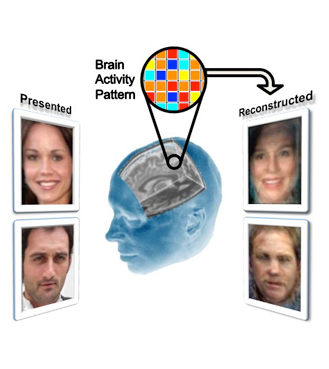Mental mining pulls faces from memory
 Researchers have extracted images of people’s faces from human memory, using brain scans.
Researchers have extracted images of people’s faces from human memory, using brain scans.
With data from an fMRI only, researchers led by a Yale University undergraduate have accurately reconstructed images of human faces as viewed by other people.
“It is a form of mind reading,” said Marvin Chun, professor of psychology, cognitive science and neurobiology and an author of a paper published in the journal NeuroImage.
Advances in fMRI scanners have recently allowed researchers to ascertain the rough outline of a memory, such as whether a person has viewed a building or an animal.
“But they can only tell you they are viewing an animal or a building, not what animal or building,” Chun says.
“This is a different level of sophistication.”
The research project was launched when one of Chun's students wanted to know if it was possible to reconstruct a human face from patterns in brain activity.
The task was daunting, because faces are more similar to each other than buildings. Also large areas of the brain are recruited in the processing of human faces, a testament to its importance in survival.
“We perceive faces in a much greater level of detail than we perceive other things,” Yale University undergraduate Alan Cowen said.
To find faces locked in the archives of human memory, researchers showed six subjects 300 different “training” faces while undergoing fMRI scans.
They used the data to create a statistical library of how the brains responded to individual faces. They then showed the six subjects new sets of faces while they were undergoing scans.
Taking that fMRI data alone, researchers used their statistical library to reconstruct the faces their subjects were viewing.
Cowen said the accuracy of these facial reconstructions will increase with time, as more is learned about the way the brain physically stores information.
Chun said the study shows the value of universities backing their undergraduates’ research ambitions.
“I would never have received external funding for this, it was too novel,” Chun said.








 Print
Print